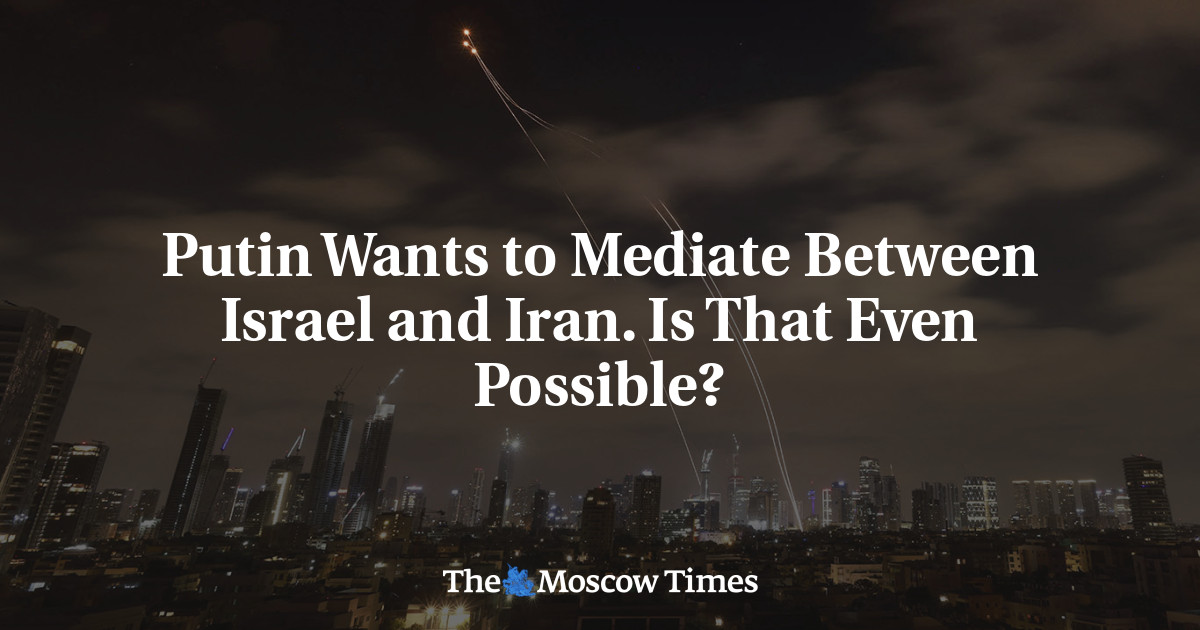
Putin Wants to Mediate Between Israel and Iran. Is That Even Possible?
How did your country report this? Share your view in the comments.
Diverging Reports Breakdown
Putin Wants to Mediate Between Israel and Iran. Is That Even Possible?
Russia has expressed its concern about the military escalation between Iran and Israel. Moscow has pretensions of being a mediator between the two conflicting sides. But does the Russian leader have a real chance to help achieve a ceasefire in the Middle East? The more important question is whether Putin is actually interested in stopping the bloodshed in the region. The current escalation is certainly beneficial to the Kremlin. It distracts the attention of the United States and Europe from the war in Ukraine, giving Putin the opportunity to continue. At the same time, the current escalation will lead to a reduction in military cooperation between the Islamic Republic and the U.S. This would lead to the conservation of large-scale joint projects, such as the Russian-Iranian gas hub, the Bushehr nuclear plant and the construction of new reactors for the new nuclear power plant in Bushehehr, Iran. The Kremlin’s active military cooperation with Iran, as well as support for Tehran’s proxies in the Mideast, has spoiled its partnership with Israel.
For many years, Putin’s Russia could brag about its close relations with the key actors in the Middle East, including those who are at loggerheads with each other. This balancing gave Moscow a chance to strengthen its presence in the region, including a military one. One of the brightest examples in this regard was Syria, wherein Russia had a close cooperation with Iran, Turkey and, to a certain extent, Israel — especially via intelligence services. However, with the start of the full-scale invasion of Ukraine in February 2022, other issues began to fade into the background for the Kremlin, including the situation in the Middle East. The reduction of political, diplomatic and military resources in the region led to a weakening of the Russian presence and the inability to influence processes seriously. The rapid collapse of the Bashar al-Assad regime in Syria at the end of 2024 made it clear that the Kremlin no longer has the ability to support allies in the region, as it did 10 years ago. Assad’s fall was also a personal blow to Putin, whose apparent weakness gave his regional partners an additional reason not to trust him. Furthermore, over the past three years, Moscow’s balancing policy in the Middle East has been shaken. The Kremlin’s active military cooperation with Iran, as well as support for Tehran’s proxies in the region — starting with the Houthis, Hamas and Hezbollah — has spoiled the Russian-Israeli partnership amid the escalating conflict over the Gaza Strip. Relations have also been strained by inaccurate statements by several officials, starting with Foreign Minister Lavrov, who in May 2022 said that the Jews themselves were responsible for the Holocaust. At the same time, Iran also has reasons to distrust Moscow. Thus, during its presence in Syria, Tehran suspected the Kremlin of close cooperation with Israel. For example, after the attack on the Iranian consulate general in Damascus on April 1, 2024, in which several high-ranking generals were killed, Tehran, among other things, looked for evidence of Russian involvement. Diplomatic conflicts also arise periodically between Russia and Iran. In 2023, the heads of Russia’s diplomatic mission in Tehran were twice summoned to the Islamic Republic’s Foreign Ministry because of Moscow’s pro-Emirati position on three islands in the Strait of Hormuz, which are controlled by Iran. But the United Arab Emirates (UAE) — a more profitable economic partner for the Kremlin — disputes ownership of the chain. Thus, neither Iran nor Tel Aviv currently counts on Moscow as a reliable partner.
The current escalation in the Middle East is certainly beneficial to the Kremlin. It distracts the attention of the United States and Europe from the war in Ukraine, giving Putin the opportunity to continue. In the event of Washington’s military participation in the conflict, this will also require the involvement of resources, including weapons for the Jewish State. When choosing between Israel and Ukraine, Trump will obviously give priority to the first one. At the same time, the war in the Middle East also means an increase in oil prices, to which the Russian budget is strongly tied. However, Moscow, still wanting to maintain a presence in the region, is not interested in an uncontrolled conflict with catastrophic consequences for all actors. Moreover, the Kremlin fears, if not a collapse, then at least a weakening of the regime in Tehran. This would lead to the conservation of large-scale joint projects, such as the North-South transport corridor, the Russian-Iranian gas hub, and the construction of new reactors for the Bushehr nuclear power plant. At the same time, the current escalation involving the Islamic Republic will lead to a reduction in military cooperation between the two countries. This has the potential to disrupt the supply of Iranian drones, ballistic missiles and other weapons and military equipment to Russia. The fall of the theocratic regime in Iran will turn out to be another geopolitical defeat for the Kremlin in the Middle East after the overthrow of the Assad regime at the end of last year, on which Moscow relied in the region for more than 50 years. As a result, Russia is interested in a slowly simmering conflict in the Middle East, but not in a large-scale war, as if invoking the Koranic principle “Fight … but do not transgress.”
